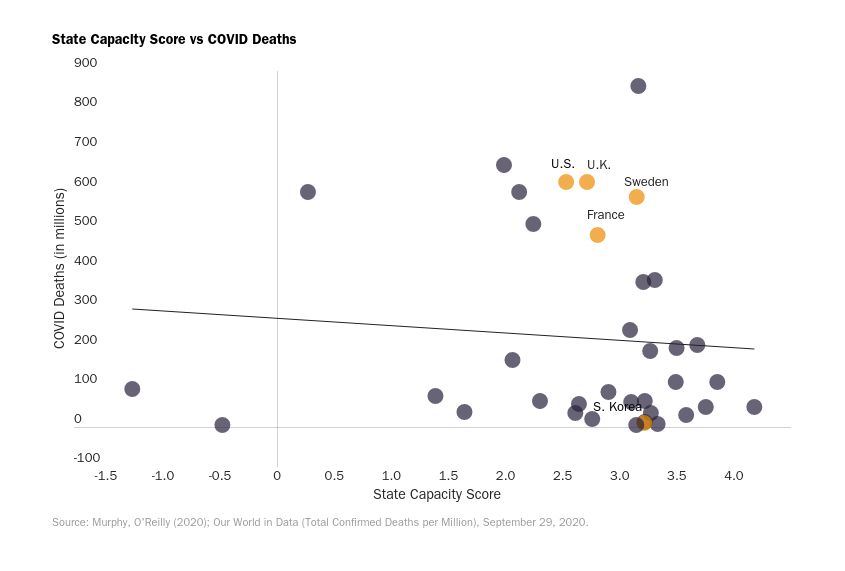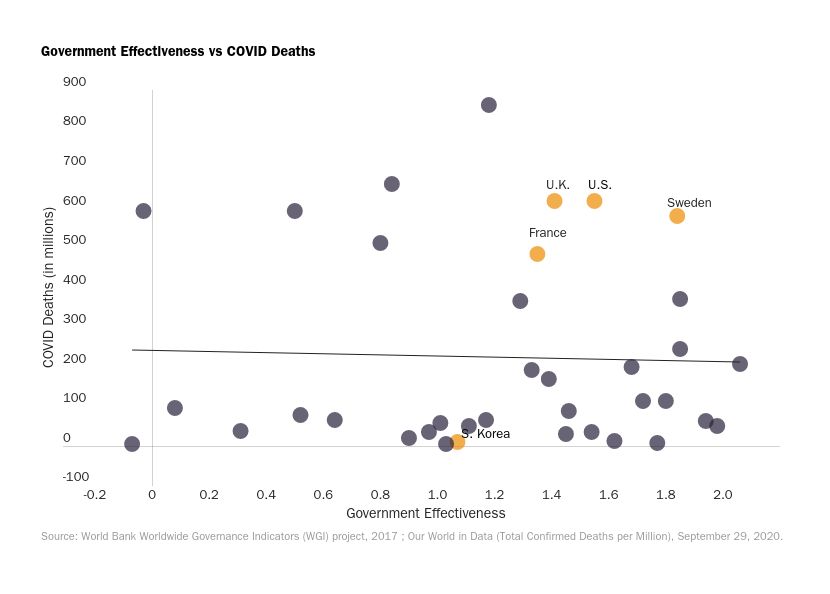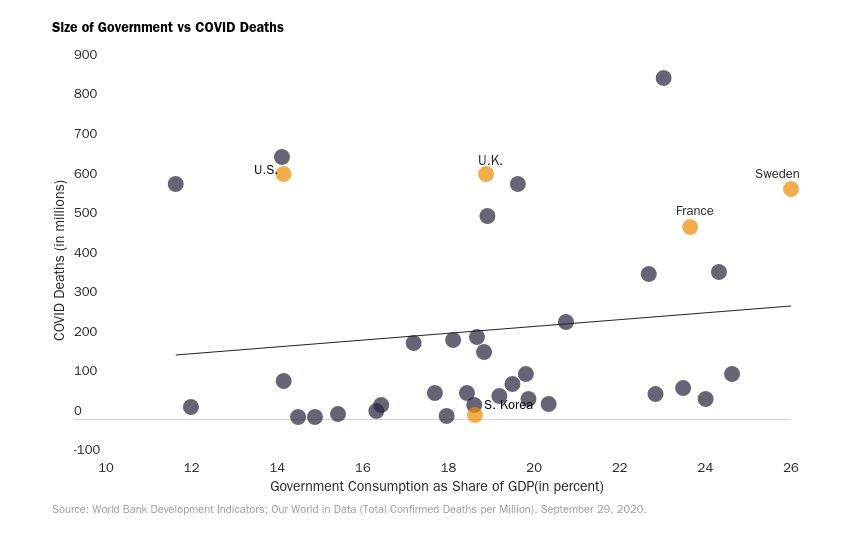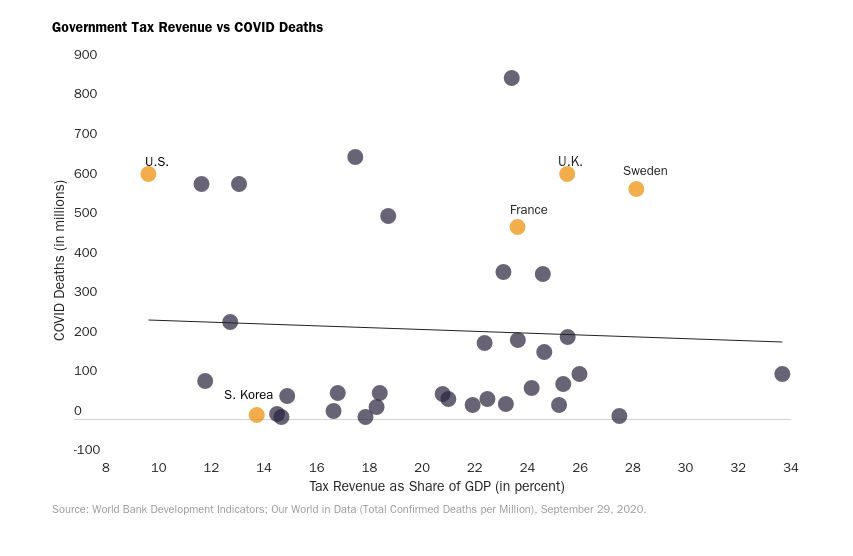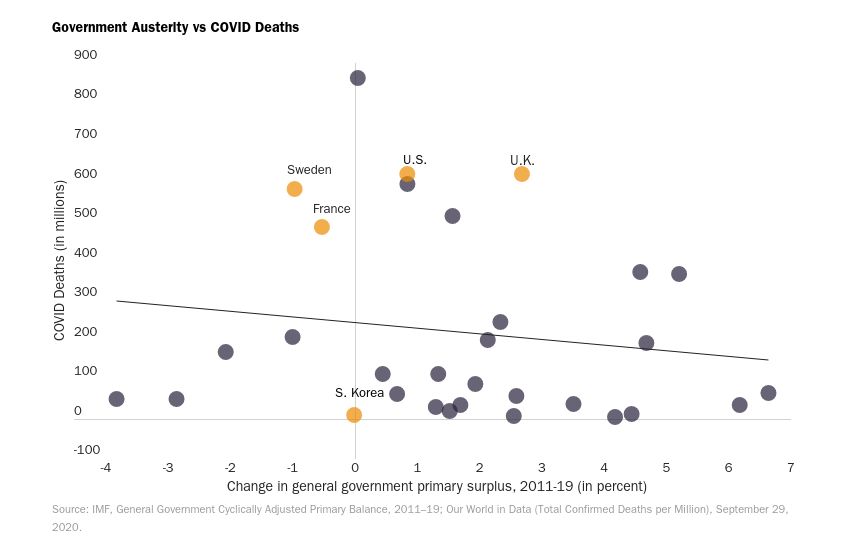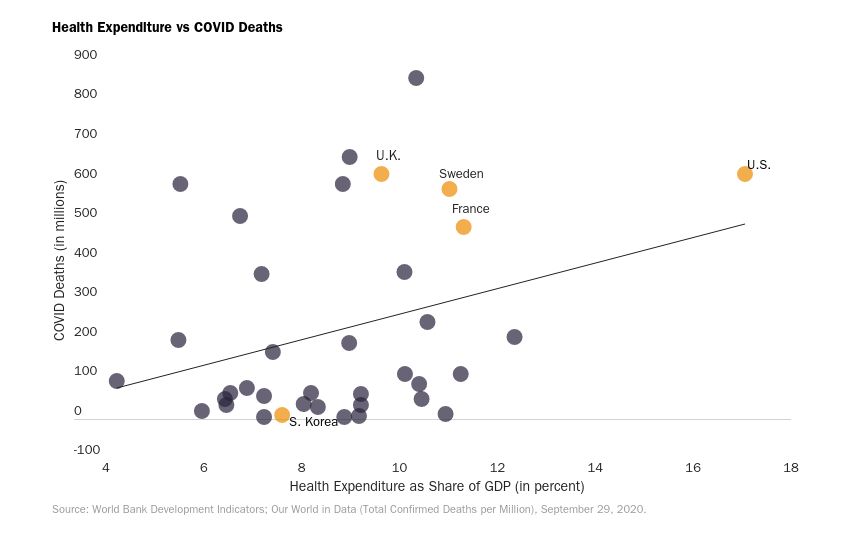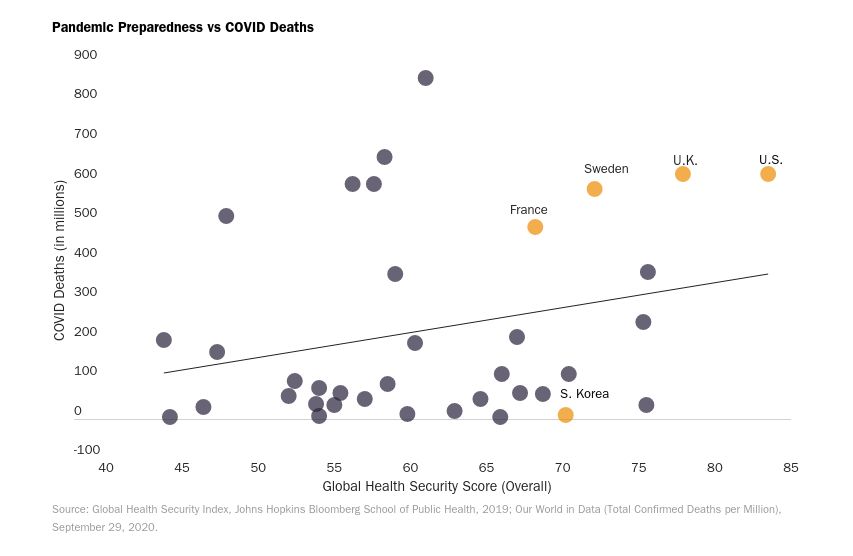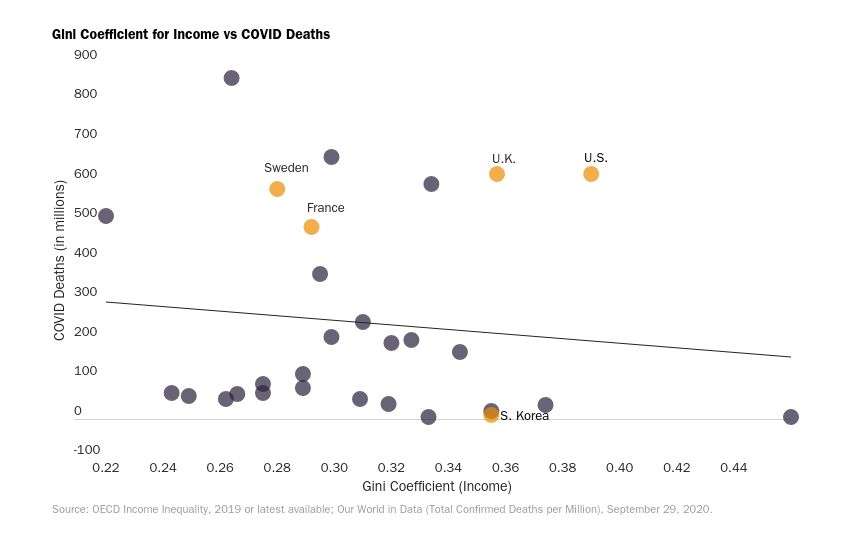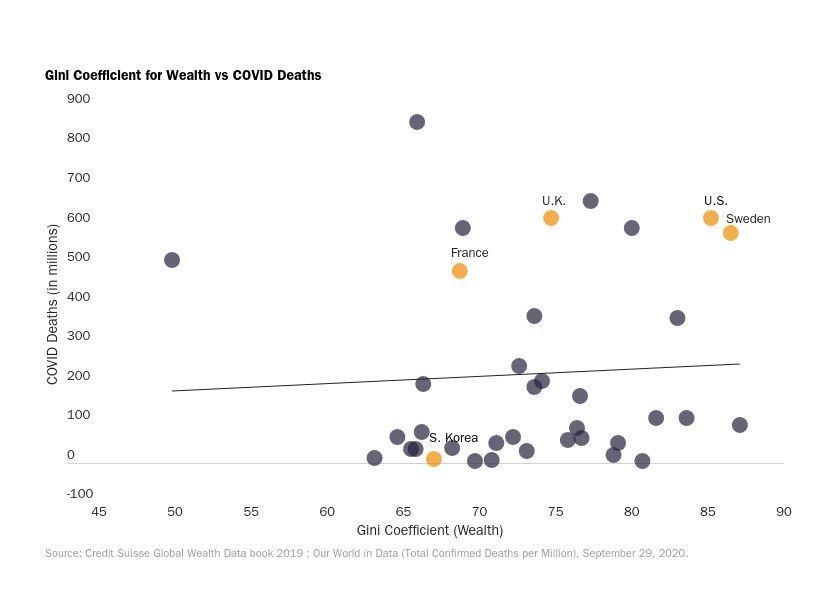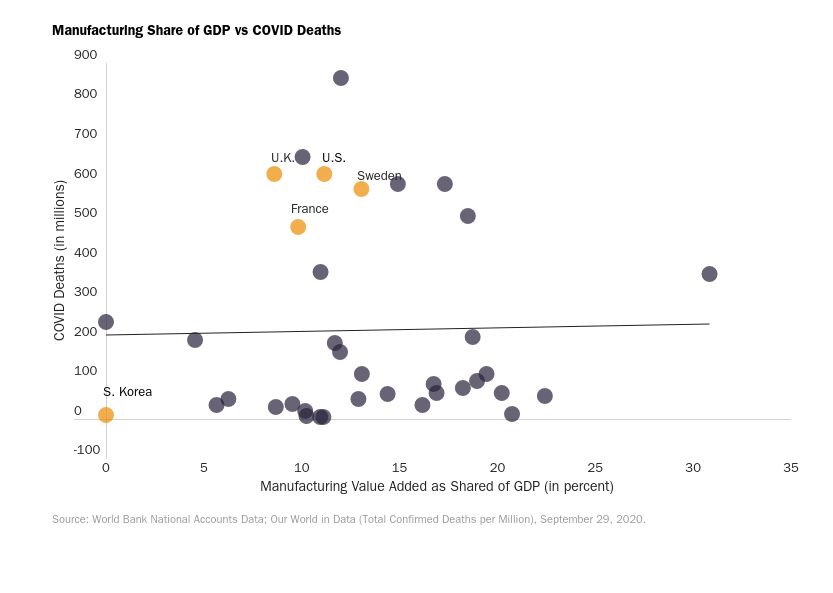NEW THREAD: For the past couple of months, I’ve seen articles that purport to tell us the **real** lessons behind cross-country differences in performance in regard COVID-19—from “state capacity” right through to “inequality” or “austerity” over the past decade.
What unites such articles/books is the conclusion that the pandemic proves the need for the policies that the author has long advocated. Here’s the problem: while some sound theoretically plausible, almost none generalise across countries to explain what& #39;s happened.
If it really were the case that, say, state capacity differences explained performances across countries, then (as simplistic as it seems in a multifaceted world), we might expect to see at least some cross-country correlation between state capacity measures and COVID deaths.
Except there& #39;s no correlation between state capacity in OECD & deaths/population. Some say “that shows you’re measuring state capacity wrong.” But it’s tautology to say good performance= good state capacity, & judge state capacity from covid performance.
Take this other index across more countries-- government effectiveness. Same thing. No correlation at all between this measure and COVID-19 performance in terms of deaths. Our prior judgment of state capacity values appear unlinked to pandemic performance.
Some say this crisis proves the need for bigger government. Really? Why? Are people seeing something I’m not? This chart documents government consumption expenditure as a share of GDP. As you can see again, virtually no correlation with performance.
But perhaps government consumption expenditure isn’t the best hybrid measure of capacity and “generosity” of the state. So how about tax revenues as a share of GDP as a proxy for that? Still no.
Ah, but what about if it’s the legacy of austerity over the past decade in hollowing out the state? If anything there’s a weak negative correlation : more fiscal consolidation over the past decade is associated with fewer deaths. Still, that won’t stop the Guardian, I guess.
OK, so what about healthcare spending in particular. Surely that might go some way to explaining which countries did well and badly with an unexpected public health shock? Well, surprisingly not, at least according to this chart. Take US off and that becomes clearer.
What about pandemic preparedness? There were a few indices knocking around that sought to measure this. Here’s one of them. As you can see, there’s actually a a gentle positive correlation if anything, i.e. the better a country was judged prepared, the worse they tended to do.
What about inequality? Inequality is responsible for all the world’s ills, remember? The Spirit Level says so. Well, again, when it comes to income inequality, there’s no real cross-country correlation with level of inequality or deaths.
National conservatives are keen to say that if only we’d re-shored manufacturing capacity, we& #39;d have been more resilient to this. Again, no correlation between the manufacturing share of the economy and performance.
Does all this suggest that there are no cross-country lessons to take away? No. Simple correlations inevitably look at things as if they are monocausal. Some of these could interact with each other to make the disease more difficult to fight.
But I don& #39;t understand the confidence with which some people just assert that these things are self-evidently the cause of their country doing well or badly, when there& #39;s such weak to absent evidence when comparing across countries.
TLDR: there are evidently some things that appear to matter in the spread of this disease that might explain differing performances by country. See this great recent article, for example: https://www.theatlantic.com/health/archive/2020/09/k-overlooked-variable-driving-pandemic/616548/">https://www.theatlantic.com/health/ar...
Experience with SARS or MERS seems to have been important. And early testing, driven by lesser regulatory barriers to tests, seems to have been important too. Then there’s just luck in regards seeding, demographics, density and more. Each country must be assessed carefully.
The main point I want to make here though is--acknowledging humbly that this analysis is very simplistic--be wary of those using COVID-19 to push grand theories about the state or inequality as the key driver of pandemic outcomes. There& #39;s a lot of motivated reasoning out there

 Read on Twitter
Read on Twitter